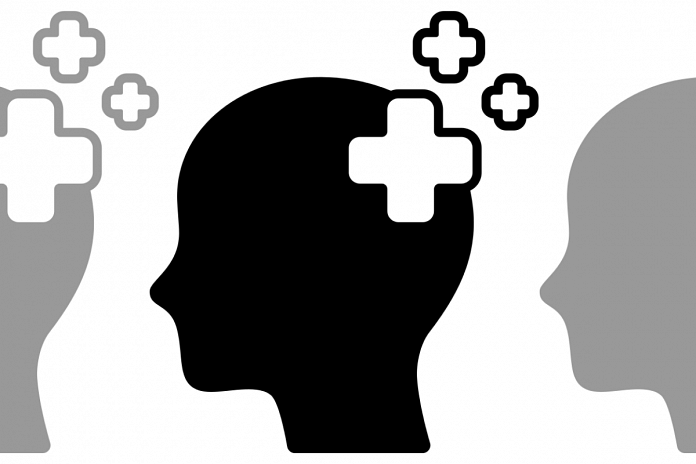Thank you dear subscribers, we are overwhelmed with your response.
Your Turn is a unique section from ThePrint featuring points of view from its subscribers. If you are a subscriber, have a point of view, please send it to us. If not, do subscribe here: https://theprint.in/subscribe/
Loneliness, often overlooked in the bustling modern world, is a prevalent and complex emotion that profoundly impacts individual’s mental health. Despite the prevalence of digital connectivity in the modern era, the paradox of loneliness continues to persist, leaving numerous individuals struggling with emotions of isolation and disconnection.
This article delves into the psychology of loneliness, its adverse effects on mental well being, and explores potential strategies to combat loneliness in contemporary society. Loneliness is more than just physical isolation; it is a subjective emotional experience, characterized by a perceived discrepancy between desired and actual social connections.
One can feel lonely even amidst a crowd, highlighting the importance of quality relationships over mere quantity. According to a nationwide survey conducted by the Indian Council of Medical Research (ICMR) in collaboration with the National Institute of Mental Health and Neurosciences (NIMHANS) in 2017-2018, the prevalence of loneliness in India was found to be significant.
The study revealed that approximately 10% to 13% of the Indian population experienced feelings of loneliness to varying degrees. The issue of loneliness was particularly notable among certain segments of the population. The elderly, in particular, faced a higher risk of social isolation and loneliness, often due to factors such as increasing life expectancy, changing family structures, and migration of the younger generation to urban centers for work and education. Additionally, young adults in India’s bustling cities also reported experiencing loneliness, despite being part of a technologically connected world.
This loneliness could be attributed to factors like rapid urbanization, social pressures, and a fast-paced lifestyle that sometimes leaves individuals feeling disconnected from meaningful
relationships and a sense of community. Furthermore, the COVID-19 pandemic likely had an impact on loneliness rates in India, as it did globally. The pandemic’s restrictions, lockdowns, and physical distancing measures limited face-to-face interactions, exacerbating feelings of isolation and loneliness among many individuals.
Loneliness can have profound effects on an individual’s psychological well-being, leading to
several negative outcomes such as:
● Depression and Anxiety: Prolonged feelings of loneliness are strongly associated
with an increased risk of depression and anxiety disorders.
● Stress and Cortisol: Loneliness triggers chronic stress, leading to elevated cortisol
levels, which, over time, can weaken the immune system and impair overall health.
● Cognitive Decline: Chronic loneliness may accelerate cognitive decline and increase
the risk of conditions such as Alzheimer’s disease, Parkinson’s disease.
● Sleep Disturbances: Loneliness is linked to sleep disturbances, further exacerbating
mental health challenges.
Despite living in a digitally connected age, modern society faces a paradox of loneliness. Social media and virtual interactions may offer superficial connections, but they often fail to fulfill the deeper human need for genuine, meaningful relationships. The constant comparison, fear of missing out (FOMO), and curated self-presentation can intensify feelings of loneliness and inadequacy.
Addressing loneliness requires a multi-dimensional approach that combines individual,
community, and societal efforts:
● Cultivating Self-Awareness: Understanding and acknowledging feelings of loneliness
is the first step towards combatting it. Encouraging individuals to reflect on their
emotions can help them seek support and build resilience.
● Nurturing Authentic Connections: Nurturing authentic connections through face-to-
face interactions, group activities, and shared interests helps combat loneliness by
fostering a sense of belonging and emotional fulfillment. Strengthening social support
networks with friends, family, and community members provides crucial emotional
and practical support during challenging times. Access to mental health resources
within these networks ensures additional assistance when needed. Together,
promoting authentic connections and robust support systems creates a more connected
and resilient community, fostering emotional well-being and a sense of belonging for
all.
● Redefining Social Media Usage: Encouraging mindful social media usage, where
individuals prioritize quality interactions over mere scrolling, can help mitigate the
negative impact of digital connectivity on loneliness.
● Mindfulness and Mental Health Practices: Incorporating mindfulness practices,
meditation, and stress-reduction techniques into daily routines can help individuals
cope with loneliness and improve overall mental well-being.
In the fast-paced modern world, loneliness remains a significant challenge to mental health, affecting millions of individuals worldwide. Understanding the psychology of loneliness and its adverse effects is essential to combat its pervasive impact.
By embracing the mentioned approach of addressing loneliness, we can foster a society that values genuine connections and effectively combats loneliness. Empowering individuals to recognize and address loneliness is the first step towards a happier, healthier, and more connected society, where individuals can thrive emotionally and mentally. Let us work together to build a future where loneliness is acknowledged, understood, and compassionately addressed.
ABOUT THE AUTHORS
APOORVA CHOUDHARY, a licensed clinical psychologist and PhD scholar, is dedicated to providing compassionate therapy to children, adolescents, and adults. She is deeply committed to enhancing the well-being of others and actively contributes to research in the fields of criminal psychology, sexual abuse and behavior, and clinical psychology.
DR. NITESH KUMAR JHA, an Assistant Professor at SGT University Delhi NCR, specializes in criminal psychology, juvenile delinquency, and personality psychology. He actively participates in academic associations and has extensive experience in presenting at conferences and serving as a resource person for various institutions.
These pieces are being published as they have been received – they have not been edited/fact-checked by ThePrint.

